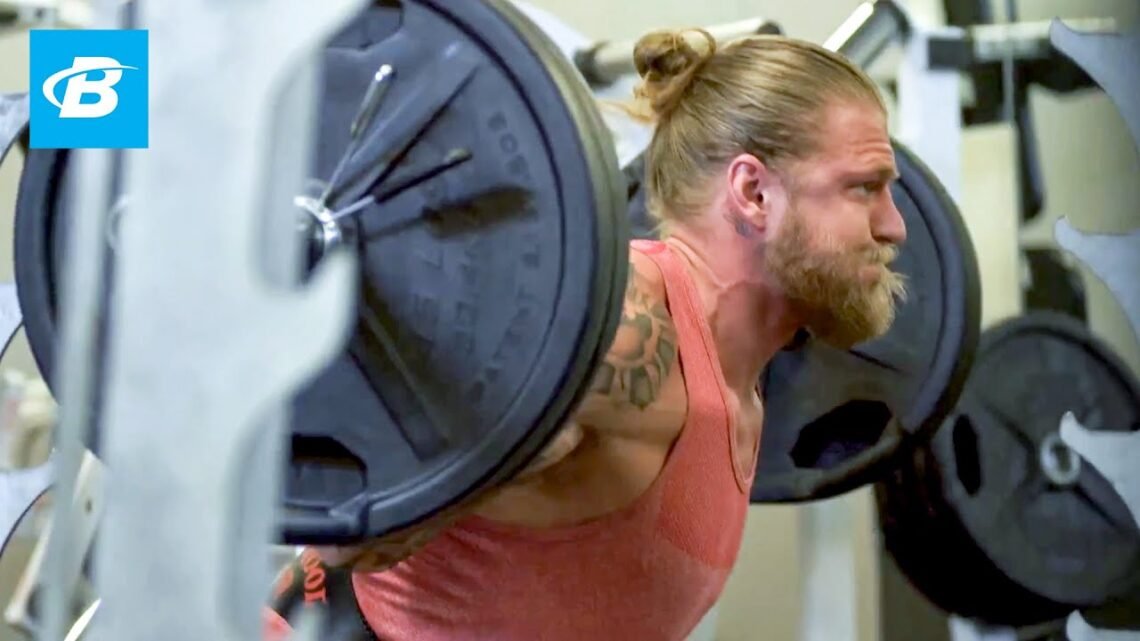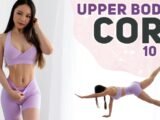
Sports Nutrition Myths for Athletes Foundations of Fitness Nutrition
September 12, 2021In this lesson, you’ll learn how to do that tuning, through the lens of a few common sports nutrition myths.
► Learn More With Our Foundations of Fitness Nutrition Course: https://bit.ly/3iileIS
► Subscribe: http://bit.ly/2DK5lGD
Many active people think that their diet must be incredibly specific to their sport. But the truth is that lifters and athletes need to focus on their foundation first. That means not getting in their own way or sabotaging their performance, and executing the basics consistently. What is known as “sports nutrition” is just fine-tuning a good thing.
Essential Ideas From The Video
• The two biggest ways that athletes sabotage their performance are not eating enough, and getting their calories through junk food.
• No evidence indicates that a direct relationship exists between an athlete’s body fat and their performance in the gym—provided that the athlete isn’t obese. If you can help it, don’t go too low on calories, and don’t get leaner than you need to.
• If you’re, say, training for a physique or bodybuilding show, there is a time to seriously cut down. But that time should be limited to targeted show prep. The rest of the time, eat a balanced diet that gives you adequate fuel for your training and recovery.
• An athlete needs a diet just like anyone else—only more of it. You need more calories—maybe as much as double what you need if you’re inactive, give or take. Purely due to your training, you probably also need more protein, more carbs, more water, and more of a wide range of micronutrients. Your fat requirements are probably about the same.
• People who are fit, and who have lean, muscular body compositions, also burn more fat than people who aren’t active—even when they’re not training. As you add metabolically active muscle tissue, you’ll start burning even more calories every day—meaning you may need more!
• You have nothing to gain and everything to lose by doing intense training fasted. Even if you just have one piece of fruit or a glass of milk, you’ll set yourself up for a better training session.
• Research has shown that your body does not preferentially choose stored body fat over carbohydrates when you train fasted. On the contrary, you put yourself at risk for using muscle mass for fuel, which is exactly what you don’t want, no matter your goals.
• A well-planned vegetarian diet can supply all the necessary nutrients to power performance and produce results. However, vegetarians are often guilty of consuming a lot of empty calories and tilting their diet toward sweets or sugary fats.
• Vegetarian and vegan athletes need to know the “complementary protein” pairings by heart, and may benefit from taking some supplemental micronutrients, such as iron, zinc, calcium, and vitamin B-12. Don’t be afraid to use vegetarian protein powders, either.
• Sports drinks and carb powders have their place—and that place is in really long events. A two-hour leg day or an epic run? Sure. Half an hour of HIIT cardio or a 45-minute chest workout? Save your money. Or even better, spend it on actual food.
• If you participate in intense training daily, carbs should probably make up at least 60 percent of your diet, or 8-10 grams of carbs per kilogram of body weight. In hands-on terms, that means a couple of fist-sized portions with lunch and dinner, plus some fruit at breakfast and maybe with a snack.
• Recent research has indicated that the so-called “anabolic window,” where the muscles are more receptive to protein and amino acids, is far larger than it previously had been thought to be—like several hours, not just 30-45 minutes. However, this is not a reason to skip having protein during this time.
• Especially if your training is intense or lengthy, like, over an hour, consuming some protein and carbs with a relatively high glycemic index in the first hour following training is a good idea. It’s tough to beat something like a protein shake with a piece of fruit.
• Prioritize protein. Fill up on veggies. Eat enough, and drink plenty of water. Those are the rules, no matter who you are—and if you execute them, they’re almost always enough. The rest is just small details.
00:00 – Intro
01:00 – Myth: The Best Athlete Is The One With The Lowest Body Fat
02:22 – Myth: Athletes Need a Totally Different Diet Than Sedentary People
03:38 – Myth: Fasted or Cardio Exercise Is Best for Fat-Loss
05:00 – Myth: Vegetarians’ Needs Are Far Different Than Meat Eaters’
06:18 – Myth: Exercise Demands Extra Sugar or Sports Drinks
08:57 – Myth: What You Eat After a Workout Doesn’t Matter
10:53 – One Big Takeaway: Star With Your Meals
#nutrition #Athlete #Diet



